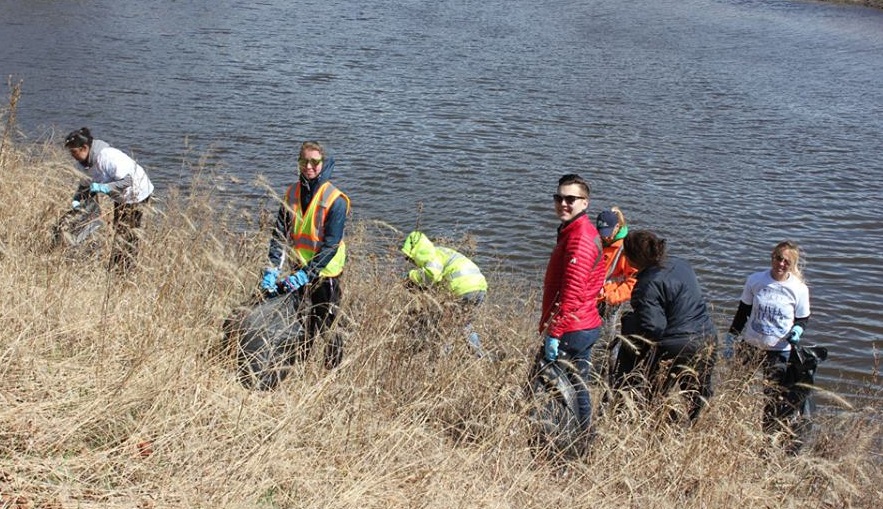
Over 200 bags of trash, some shopping carts, mattresses, and a port-o-let were removed from Milwaukee’s Lincoln Park earlier this month during an annual river cleanup led by Milwaukee Riverkeeper. The event drew nearly 3,500 residents and local officials to rivers across the city. Almost 100 of these volunteers were members of the Friends of Lincoln Park. Formed last October, this cleanup was the group’s first outreach project, with many more slated for 2015.
Members of the Lincoln Park community first came together in response to ongoing efforts to rid the Milwaukee River bottom of legacy contaminants like PCBs and PAHs. Phase two of the Great Lakes Legacy Act project was underway, and with the river making up such a large portion of the park, the community was taking notice. With support from focus groups conducted by Caitie McCoy and UW-Extension’s Gail Epping Overholt, residents were inspired to create a way to voice their thoughts and concerns on the direction of the park.
 The result was the Lincoln Park Friends Group, who, in association with Milwaukee County Parks, the Park People, the Wisconsin Department of Natural Resources, and Wisconsin Sea Grant, is now working to revitalize Lincoln Park in a way that brings together the surrounding community.
The result was the Lincoln Park Friends Group, who, in association with Milwaukee County Parks, the Park People, the Wisconsin Department of Natural Resources, and Wisconsin Sea Grant, is now working to revitalize Lincoln Park in a way that brings together the surrounding community.
“There’s a ton of work to do, but we want to build organically,” Thomas added. “We want to build it slowly, and we want it to be strong and sustainable.”
***Photo credit: Friends of Lincoln Park


